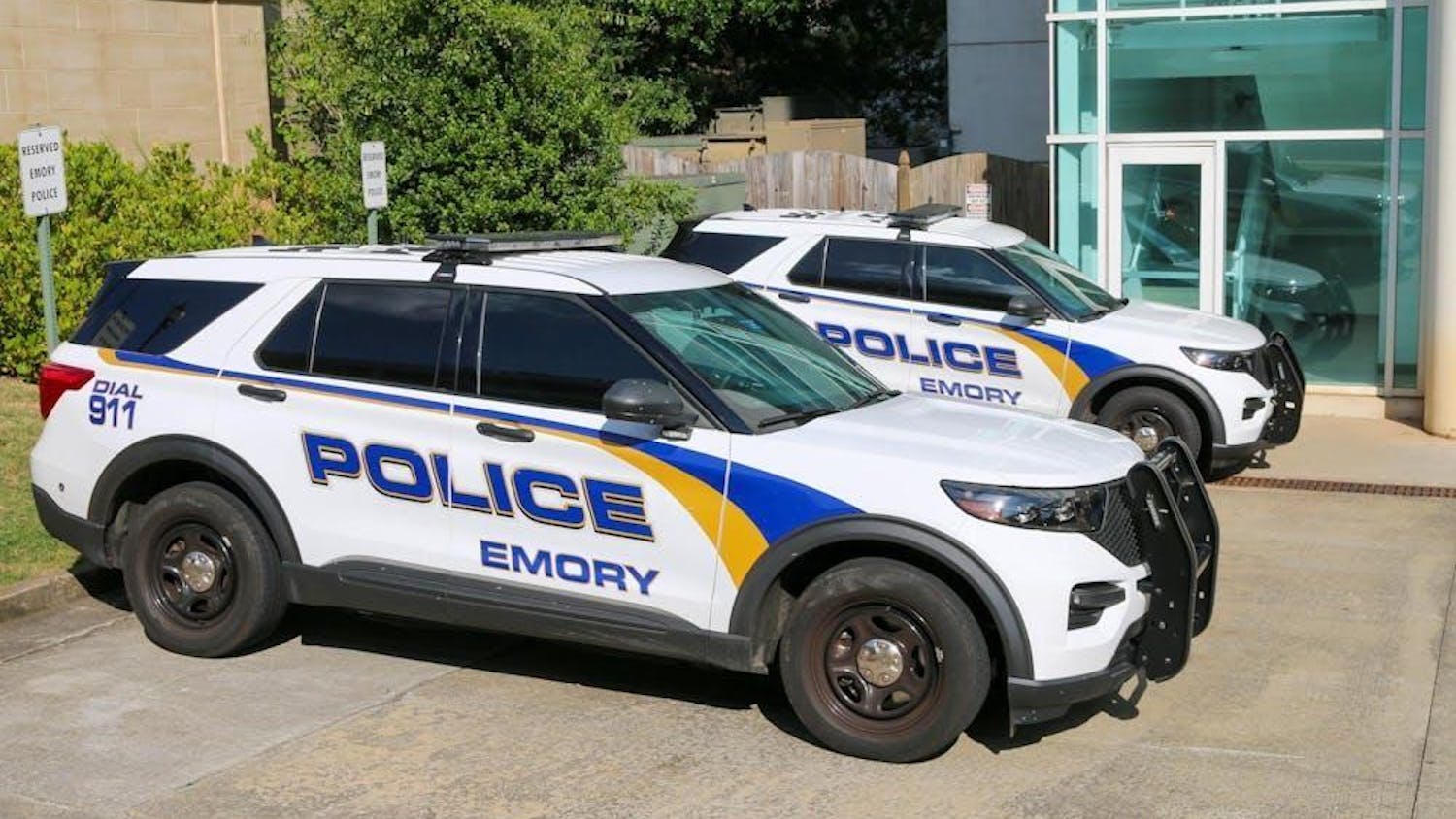
Paying homage to the legacy of Martin Luther King Jr., the Emory Department of African American Studies and the James Weldon Johnson Institute featured Nikole Hannah-Jones, an award-winning investigative journalist for the New York Times Magazine, as a keynote speaker for King Week on Tuesday afternoon.
The event, which was held in the Robert W. Woodruff Library, attracted approximately 200 Emory students, faculty, staff and Atlanta residents.
Hannah-Jones is the winner of a MacArthur “Genius” grant and an investigative journalist specializing in the civil rights era. At the Times Magazine, she developed the 1619 Project to explore the way slavery influences modern-day U.S. race relations.
Charles Howard Candler Professor and Chair of the African American Studies Department Carol Anderson and Arianna Murray (20C) introduced Hannah-Jones.
Hannah-Jones discussed the legacy of King, specifically commenting on the failure of the national holiday in recognizing the complexity of King’s vision and impact.
“This is that time of year where we like to get that homogenized, commodified version of Dr. King. Everyone wants to quote those two paragraphs of the [‘I Have A Dream’ speech],” Hannah-Jones said. “It’s a way for us to pretend that all Dr. King is arguing for is some ‘kumbaya’ moment where we all clasp hands and go into the future together.”
She challenged the audience and society to read the full “I Have a Dream” address, fully understanding its whole meaning as a radical speech that calls out the American government to actually follow through on combating anti-racism.
“His dream was that the country would actually follow through on the promises they made,” Hannah-Jones stated. “That [America] would actually treat black Americans as full citizens in the country of their birth.”
Hannah-Jones went on to discuss the White Lion, the ship that arrived in 1619 in present-day Virginia, which housed the first enslaved African people in the U.S. She noted that this slave ship came to North America before the Mayflower landed in Plymouth, Mass., but this fact has been completely discarded from our collective American history.
The lack of emphasis in American history classes on the horrors of slavery was the impetus to start the 1619 Project, according to Hannah-Jones.
“The project was my way of answering that question that every black person gets: Slavery was a long time ago. Why don’t you get over it?” Hannah-Jones said. “So every single essay in this project answers that question. And the answer is: We can’t get over it until white America gets over it.”
She continued to outline slavery’s overlooked presence in American history, pointing out that the U.S. Constitution was not a document of liberation for black Americans, but rather one of slavery. The discrepancy lied in claiming to be the first democracy while still continuing the practice of slavery, according to Hannah-Jones.
“We are raised to believe that America is an exceptional nation. I would agree, just not in the way we are taught,” Hannah-Jones said. “We are exceptional in our hypocrisy. We are exceptional in that we were founded on the most amazing ideas, … but the ugly truth behind that is every time you look around and see a black person in this country, you’re reminded that that Declaration [of Independence] was built on a complete lie.”
Hannah-Jones also challenged misguided, long-held perceptions of black people.
“We contributed a lot more than [being] bent over picking cotton,” Hannah-Jones said.
The end of Hannah-Jones’ presentation was met with raucous applause. The last part of the event was spent answering questions ranging from reparations to the possibility of a world without racism.
Audience members commented that Hannah-Jones voiced a necessary and often unspoken perspective, one that is particularly applicable on Emory’s campus.
“It was really great having someone here who’s right now talking about the things that are on my mind, but no one ever seems like it’s important enough to talk about,” Neekisia Jackson (14C, 21T) commented.
Doctoral student Aleo Pugh (25G) discussed the importance of Hannah-Jones’ message at a place like Emory.
“There is something just really important about noticing the ways that Emory is situated in a city that is majority black and yet has such a small population of black students,” Pugh stated.







